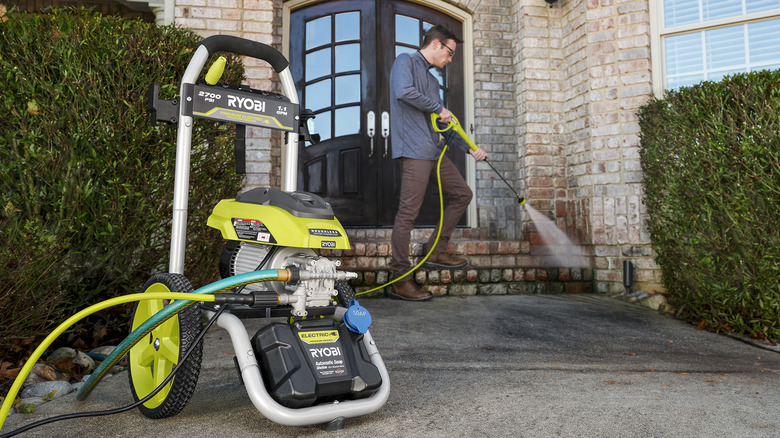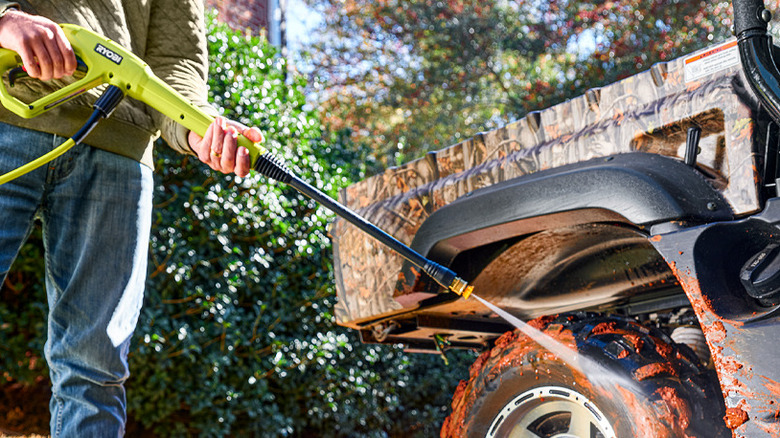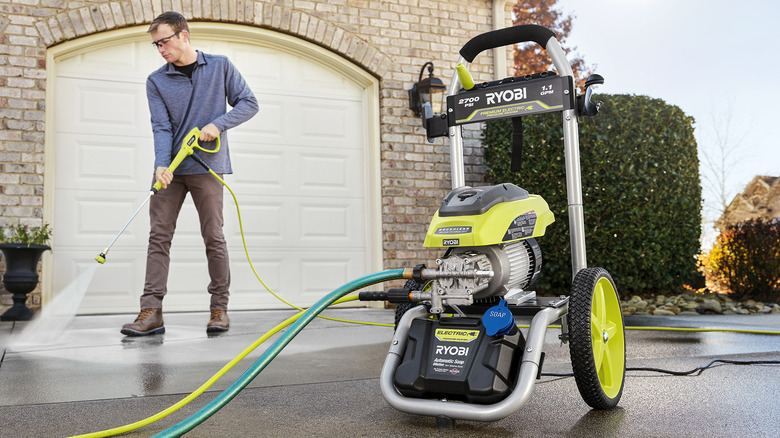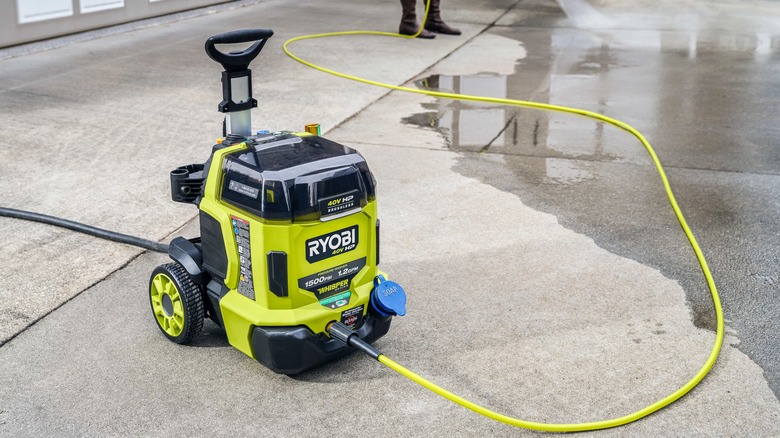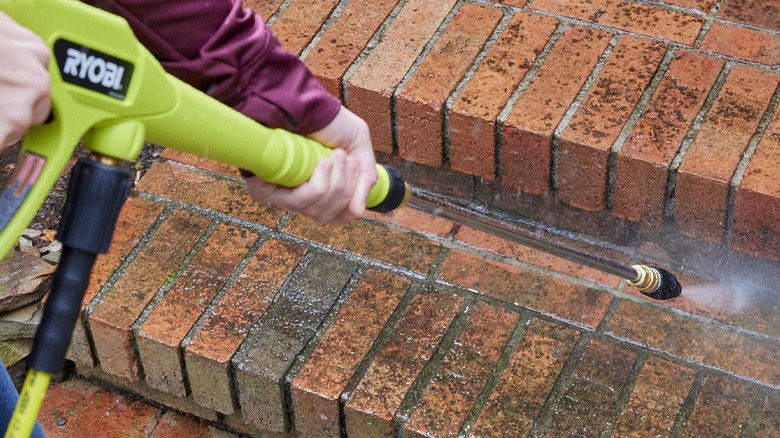4 Reasons Why Your Ryobi Pressure Washer Keeps Stopping
Whether you're looking to get your first pressure washer or add another one of these mean machines to your collection, it's hard to go wrong with a pressure washer from Ryobi. The Home Depot brand has a well-established reputation of providing easily accessible and affordable power tools that, while not always on par with more premium brands, manage to impress with their performance. The Japanese manufacturer's lineup is considered some of the best out there, with each pressure washer within the company's lineup — whether gas, battery, or electric-powered — scoring consistently high with customers who love their stellar power, variety of accessories, and range of functions.
But even the best tools aren't always perfect. If you've used your pressure washer for an extended period of time, then there's a chance that you've run into the unfortunate situation of your device no longer working. Thankfully, the root of the problem is likely one that countless others have gone through and can be fixed. There are numerous reasons as to why your pressure washer is no longer functioning, and learning how to pinpoint and troubleshoot these issues is key to ensuring you get years out of your trusty device. Here are some of the most common causes and how you can fix them.
Overheated engine
While your Ryobi pressure washer is in use, its engine will create heat. If not careful with how much your pressure washer is used or where it is stored, it can overheat and stop working. This is an issue more common in gas-powered pressure washers due to the extreme power they produce, but electric aren't immune to this either.
Not maintaining your device can result in this happening, especially if there is a build up of dirt and debris in the filter. An overly tightened gas cap or pinched gas line can prevent proper gas from flowing properly, which can also cause overheating. Similarly, using your machine for too long on a hot day will create excessive heat and cause it to shut down.
In most instances, the pressure washer itself can prevent itself from overheating thanks to its internal functions. Gas-powered pressure washers possess a thermal release valve that releases cool water, while electric models have an automatic switch that prevents the pump from running when it becomes overheated. If you run into a situation where your pressure washer is overheated, bring it to a cool area and allow it to cool down before starting it up again.
Faulty power source
If your electric power washer suddenly stops working, it could be a sign that it's having trouble getting fueled by its respective power source. When this happens, check your electric circuit breaker. The powerful motor within your appliance is very strong and can easily cause a trip to the breaker, especially if it is being used at the same time as another device.
Similarly, while it's common practice for users of electric pressure washers to use extension cords to allow for more freedom, this can also cause issues. Using an extension cord or a power board generally weakens the amount of power going into your pressure washer and can also cause a circuit breaker trip. When possible, it's best to plug your pressure washer directly into the outlet. If you do need an extension cord or power strip for certain tasks, however, ensure that the one you have is suitable for outdoor use.
Obviously, you'll need to ensure your batteries are well-powered for a battery-powered pressure washer. But the kind of battery you utilize can also make a difference. Be sure you're using a 5.0Ah battery and have a couple of extra fully-charged batteries on hand to replace them.
Poor water supply
Of course, a pressure washer is of little use if it can't wash anything. Producing enough water is instrumental to how well your device can do its job, which first requires ensuring that the garden hose you attach to your pressure washer is also attached to a quality water source. However, going about this wrongly can result in your pressure washer not working.
It may be tempting to simply stick the other end of the hose into a bucket and call it a day, but that could lead to more problems than you think. There needs to be a strong flow of water that reaches the pump in order for the appliance to deliver sufficient pressure. Your average 5 gallon bucket does not provide this and can lead to your pressure washer failing as its system is further strained. The best way to prevent this is by securely connecting the other end of the garden hose to your house's water supply or a water tank. Similarly, double-check to make sure that nothing is obstructing or kinking up your hose, as this will also prevent water from coming out properly and stress your machine.
Clogged nozzle
Among the most important parts of your pressure washer is its nozzle. These essential accessories are available in several varieties, from standard quick-connect nozzles to power-packed turbo options to a versatile 5-in-1 attachment. No matter your choice, keeping them maintained is crucial to ensuring you get the best use out of your pressure washer.
Your pressure washer's nozzle is prone to getting clogged with dirt and debris, especially if you source your water from a tank. If the rest of your appliance seems to be functioning properly, double-check the nozzle to see if it's having trouble expelling water. The solution to this problem can be found in a surprising place. The back of your Ryobi instruction manual contains a thin cleaning tool that can be inserted into the end of your nozzle. It may also be in your pressure washer's accompanying accessory pack. Simply insert the cleaning tool into the nozzle and fish around to loosen any debris.
